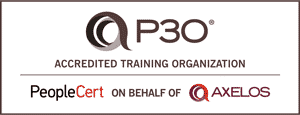Described as a project management method,
PRINCE2 training course provides a step-by-step approach for the preparation, execution and closure of a project. PRINCE2 describes
seven principles and practices applied through a project lifecycle composed of seven processes. The seven principles lay the foundation for good practice, whereby the seven practices provide key concepts and techniques that require continual application through the life of a project.
PRINCE2’s processes provide a sequence of activities and recommended steps for project teams to follow and ensure their project is applying a good practice project management method.








